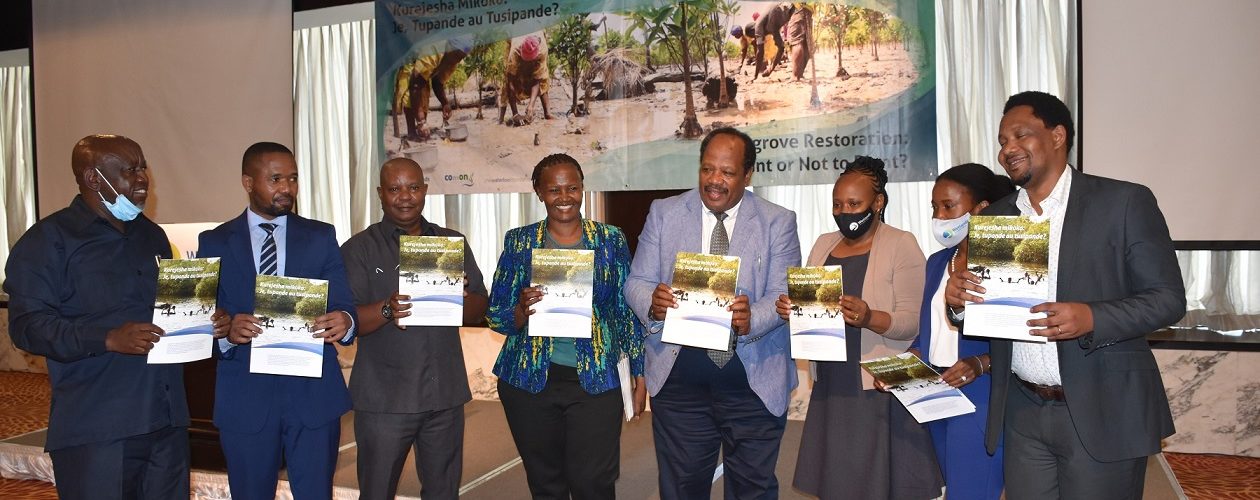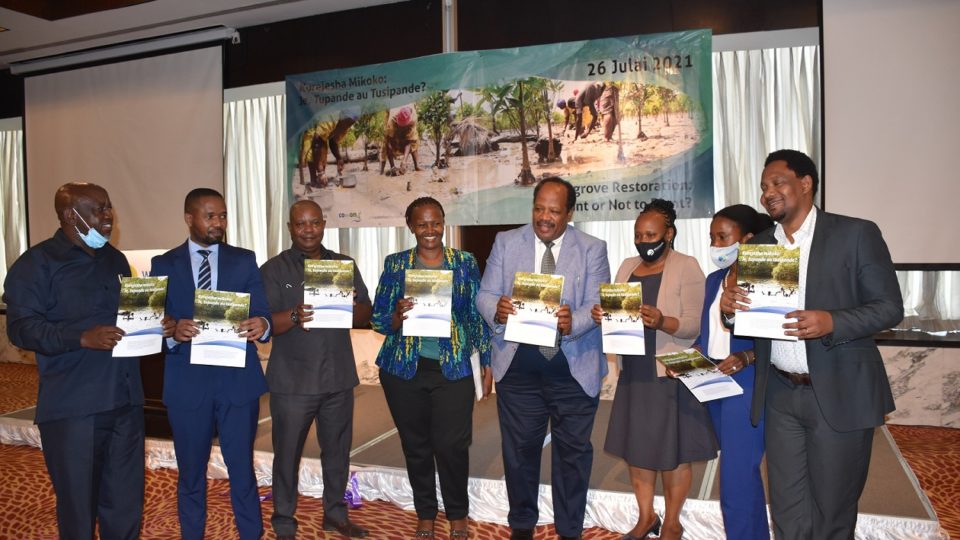In many parts of the world, mangrove ecosystems including the Western Indian Ocean (WIO) region have been lost or degraded mainly due to human activities. According to the recently released report on mangroves – The State of the World’s Mangroves – there are 136,000 square kilometres of mangroves remaining globally. That is just a sixth of the size of Tanzania. More alarmingly is that over 60% of the planet’s mangroves have been lost.
WIO Mangrove Restoration Network states that the total area of mangroves in this region is estimated at one million hectares which represent approximately 5% of the global mangrove coverage. Restoration is, therefore, necessary to ensure these critical ecosystems continue to provide the much-needed services to both people and nature.
As the world recently marked the Mangroves Day on 26th July, senior central government and local administration officials for Tanzania, mangrove specialists, community and civil society representatives gathered to engage on how to boost restoration efforts in Tanzania.
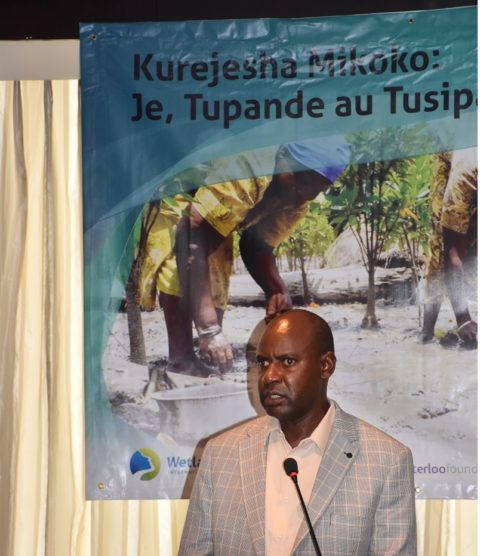
Dr Mwita Mangora of Institute of Marine Sciences
A Tanzania national chapter from the WIO Mangrove Restoration Network was mooted to provide a forum for stakeholders to contribute to solutions to the challenges faced by these forests. Members and stakeholders in the national chapter will be policymakers, scientists and managers from government and civil society organisations. Speaking at the launch of a new innovative project on mangrove restoration, To Plant or Not To Plant by Wetlands International, Dr Mwita Mangora of the Institute of Marine Sciences affirmed that stakeholders in the sector must work in close collaboration for successful mangrove conservation. “As WIO Mangrove Restoration Network, it is imperative that the global agenda and partnerships on mangrove ecosystems are integrated into local, national and regional policies, programmes and plans.”
Anna Lawuo, Head of Ecotourism and who represented the Chief Executive of Tanzania Forest Services (TFS) Agency at the launch event, called upon mangrove stakeholders to consider supporting a national mangrove week that would boost awareness and knowledge of the true value of these forests not only in the local communities, but also the policymakers and decision-makers.
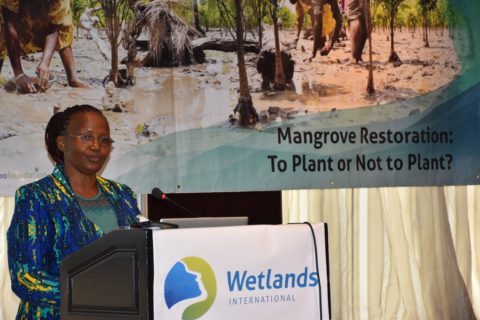
Anna Lawuo, Head of Ecotourism at TFS
The To Plant or Not To Plant project advocates for ecological mangrove restoration whereby natural regeneration is prioritised and artificial regeneration (active planting) of the right species only where it is necessary and in appropriate conditions. Wetlands International has partnered with Turing Foundation, Waterloo Foundation, Comon Foundation and others this project that has so far successfully been implemented in several countries in South East Asia.
While supporting the establishment of the Tanzania chapter for WIO Mangrove Restoration Network, Julie Mulonga, Wetlands International Eastern Africa Director, recognised the role of partnerships and mobilisation in restoration. “Together with other key stakeholders, Wetlands International has restored 105 hectares in the Rufiji Delta. That is no mean feat given the unique challenges on the ground. It’s imperative to continue working with the local communities as they are the key stakeholders in the restoration of ecosystems,” said Mulonga.
Loss of mangroves in Rufiji has been exacerbated by conversion to farming, overharvesting, an invasive plant species, upstream activities that affect the delta’s hydrology, livestock incursions and climate change.
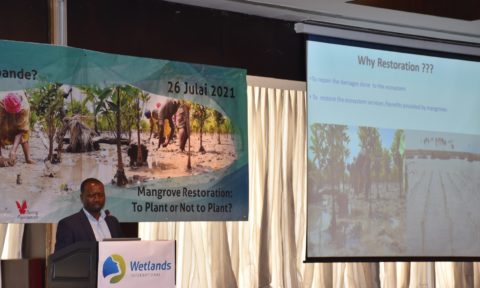
Dr Dominico Kilemo, Foundation for Energy, Climate and Environment (TZ)
Dr Dominico Kilemo, Foundation for Energy, Climate and Environment Tanzania, underpinned the role of community in mangrove restoration. “The local community is the key to successful mangrove restoration and conservation. At least in the Rufiji Delta. The indigenous knowledge they possess on mangroves is deep. They must be respected and engaged from the onset of any restoration interventions.”
As the only trees that can survive on salt water, mangroves are rich nurseries for fish and other marine life, are active barriers against storms, regulate and purify water, protect coastal areas from erosion and store three times as much carbon as terrestrial forests. They are also bird havens with Rufiji Delta (Rufiji-Mafia-Kilwa) designated as one of the five Ramsar Sites in Tanzania. The Rufiji community are intricately connected to mangroves where the ecosystem acts as their life support system. Hence, any important decisions and interventions of where and how to restore must also take into account the local socio-economic factors.
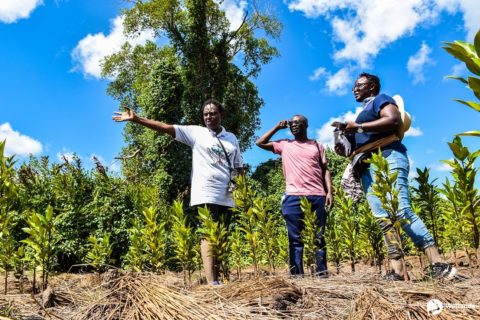
Mkamungu, one of the sites in Rufiji being restored by Wetlands International in collaboration with the community and TFS under the Mangrove Capital Africa programme and financed by DOB Ecology
It is hoped that the other WIO countries such as Kenya, Mozambique, Madagascar and others will follow suit in initiating the process to establish their national chapters to strengthen mangrove restoration and conservation efforts in the region.
